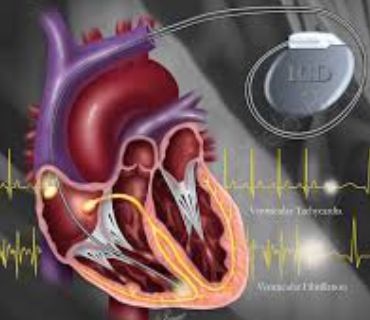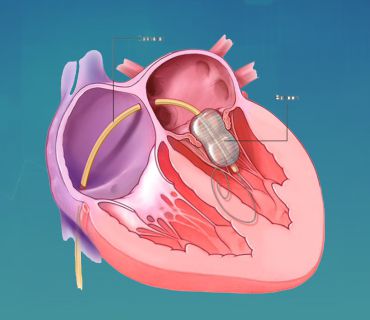
Welcome To
Heart Lab
Whether you want to learn about the condition of your heart or you need immediate treatment for a particular Heart problem, we can help. We have gained experience and expertise in different types of Heart Diseases
Come to us if you need the help of an experienced Cardiologist; we are your partners in keeping your body healthy.
Why Choose Us
What’s Our Speciality
Transradial Angiography
What is transradial cardiac catheterization? Transradial cardiac catheterization is a procedure used to treat and diagnose certain heart conditions. It is also known as transradial cardiac cath or angiography. During the procedure, a healthcare provider inserts a long thin tube…
See All Services
Non Coronary Angiography
Overview A computerized tomography (CT) coronary angiogram is an imaging test that looks at the arteries that supply blood to your heart. It might be done to diagnose the cause of chest pain or other symptoms. A CT coronary angiogram uses a…
See All Services
Coronary angiogramOpen pop-up dialog box
A coronary angiogram is a procedure that uses X-ray imaging to see your heart’s blood vessels. The test is generally done to see if there’s a restriction in blood flow going to the heart. Coronary angiograms are part of a general group of procedures known as heart (cardiac) catheterizations. Cardiac catheterization procedures can both diagnose and treat heart and blood vessel conditions. A coronary angiogram, which can help diagnose heart conditions, is the most common type of cardiac catheterization procedure.
See All Services
Overview
A pacemaker is a small device that’s placed under the skin in your chest to help control your heartbeat. It’s used to help your heart beat more regularly if you have an irregular heartbeat (arrhythmia), particularly a slow one. Implanting a pacemaker in your chest requires a surgical procedure.
See All Services
Overview
An implantable cardioverter-defibrillator (ICD) is a small battery-powered device placed in your chest to monitor your heart rhythm and detect irregular heartbeats. An ICD can deliver electric shocks via one or more wires connected to your heart to fix an abnormal heart rhythm. You might need an ICD if you have a dangerously fast heartbeat (ventricular tachycardia) or a chaotic heartbeat that keeps your heart from supplying enough blood to the rest of your body (ventricular fibrillation). Ventricles are the lower chambers of your heart. ICDs detect and stop abnormal heartbeats (arrhythmias). The device continuously monitors your heartbeat and delivers electrical pulses to restore a normal heart rhythm when necessary.
See All Services
Coronary Bypass Surgery
Coronary bypass surgery redirects blood around a section of a blocked or partially blocked artery in your heart. The procedure involves taking a healthy blood vessel from your leg, arm or chest and connecting it below and above the blocked arteries in your heart. With a new pathway, blood flow to the heart muscle improves.
See All Services
Achievements

















Publications
PRESENTATION
Case Presentation: Rare case of severe Valvular PS presented with severe cyanosis dilated with unique technique. TCT, San Fancisco, 2011.
PRESENTATION
Case Presentation: First-in-world case of transradial abdominal aorta stenting. TCT, Washington, 2010.
PRESENTATION
Primary PTCA. [Co-author]. Presented at Annual CSI Conference, 1999.

Years of Experience

Transradial route (interventional Procedures)

Transradial PCI and stenting cases

Our Locations
What People Says
Patient Testimonials

Superb Doc, super friendly and does not write medications for fun. Did a thorough checkup and suggested natural remedies
Nipun Arora

thankyou Dr. Chandana for helping my grandfather alot with his conditation . i am truly greatful to you
Sarvagya

A genuine doctor with so much kindness in him. He's such a great human being.
Himanshi Rana

He helped my mother alot in getting well, and he is really good at patient care. He's the best
Anushka Arora

Dr. Chanana he really ensures that his patients are comfortable, I had a really great experience with him
Varun
FAQs
1. What is coronary artery disease?
There are various types of heart disease in general population like congenital heart disease e.g. some structural defect in heart by birth commonly known as hole in heart. Rheumatic heart disease usually occurs in young adult commonly known as valvular heart disease. Coronary artery disease is most common in general population. There is narrowing of coronary arteries due to deposition of bad cholesterol. This leads to Angina or Acute myocardial infarction.
2. What are the common risk factors for CAD?
Most common risk factors for coronary artery disease are diabetes, smoking, Hypertension Obesity dyslipidemia, age, sedentary life style and stress. In clinical practice diabetes is common risk factor after 50 yrs of age. Smoking is most dreadful risk factor in younger people.
3. I am having chest pain what should I do?
Ans. Commonly asked question what should I do if I am having chest pain? As a rule all chest pains are not cardiac but you rule out cardiac first and then think of after causes. Any severe chest pain associated with sweating or breathlessness you must consult a qualified doctor immediately preferably a nearby hospital having facility of ECG. Chest pain not so intense atypical types here and there you can consult your family doctor
and plan for further evaluation.
4. I am scared for angiography?
Doctor I don’t want angiography- a common apprehension in general public. Now a days angiography is usually done through radial route (hand site) under local anaesthesia. Another important thing that
Angiography is a diagnostic procedure and after that doctor decides that what are the treatment options available.

